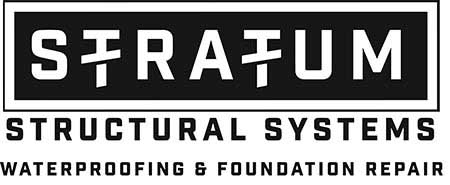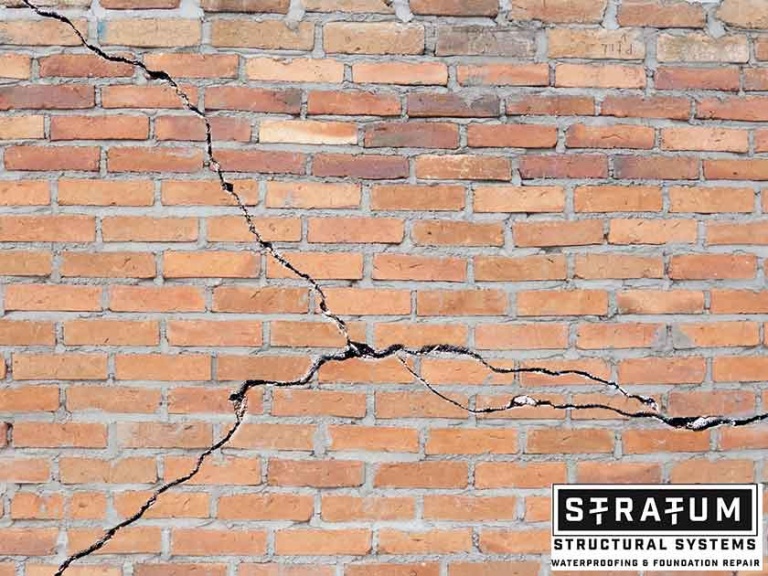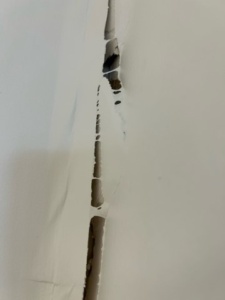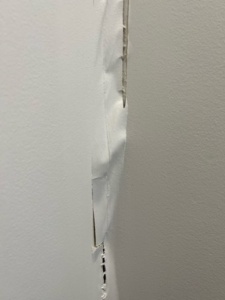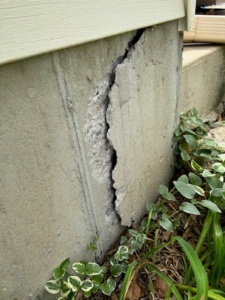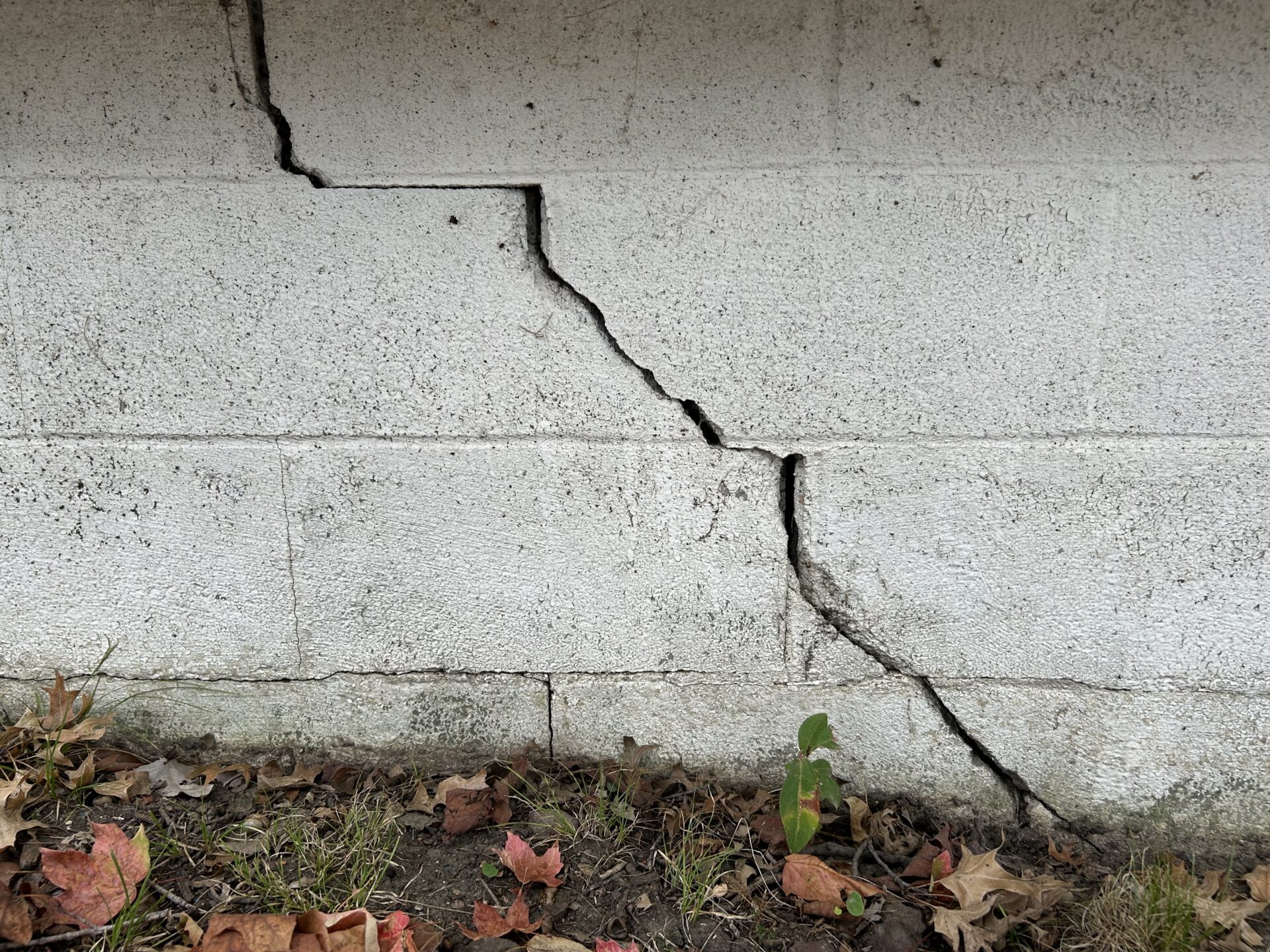What Causes Foundation Damage?
To keep your home’s structure in good condition, it’s essential to understand the potential causes of foundation damage, how foundations can be repaired, and how to prevent it in the future. As your home ages, your foundation deteriorates, sinks, or settles into the ground. Various issues can cause these problems, and none of them should be taken lightly. Although there is a wide variety of possible causes, homeowners frequently face some common foundation problems.
Common Causes of Foundation Problems
Too Much or Too Little Soil Moisture
The soil around your home plays a vital role in your foundation’s health, and in poor soil conditions, you’re much more likely to experience problems. If there’s too much water, the soil will expand and cause the foundation walls to bow or push inward or settle, prompting structural damage. If the soil is too dry, the ground shrinks, pulling away from the foundation and causing your home to settle, resulting in cracks in your foundation and additional areas of the home. Because every home is built on or in the soil, it’s the main cause of foundation damage. Soil moisture is significantly affected by the weather, your home’s drainage systems, the plumbing around your home, and the presence of large trees. The moisture around your home can also cause basement water entry, potentially damaging personal items and causing foundation damage.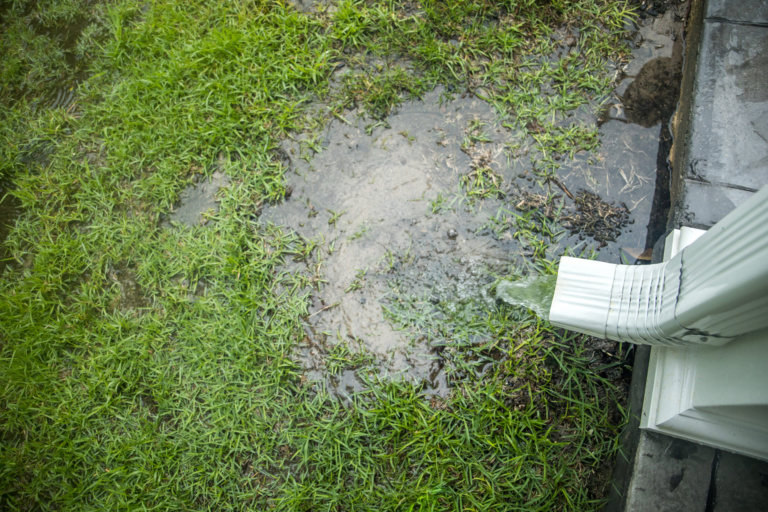
- Insufficient Drainage: If you have clogged gutters, short downspouts, insufficient waterproofing, or a poorly graded yard, your home has a poor drainage system. The soil around your foundation can become oversaturated due to improper drainage, increasing water pressure on the foundation or hydrostatic pressure.
- Leaky Plumbing: Excess water due to plumbing leaks can cause the soil around your foundation to erode. The moisture from leaks will cause the foundation and the soil to move, resulting in foundation settlement. The amount of movement will depend on the soil type, density, moisture content before the leak occurs, and how long the leak has been happening.
- Transpiration: Tree roots can absorb moisture in the soil underneath your home, causing shrinkage and settlement of the house. The more mature trees and bushes are, the more water their root systems need. These roots will take moisture from beneath your home’s foundation and cause the soil to shrink.
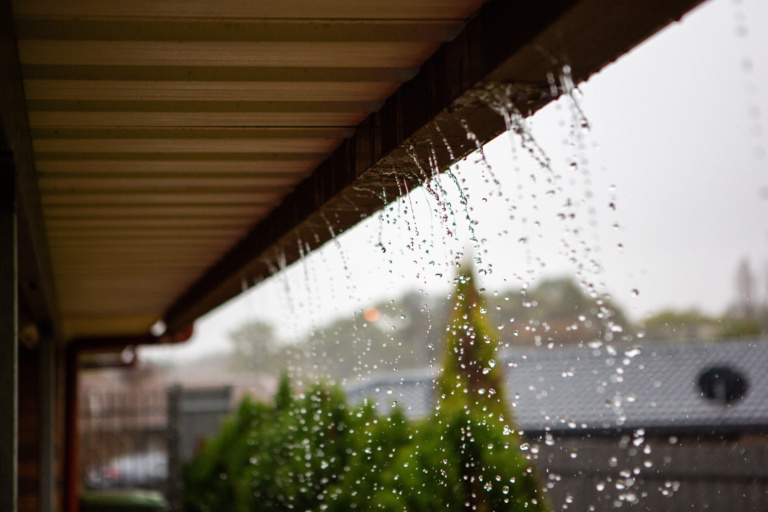
Improper Construction
Building a home requires following the proper steps in laying the foundation. However, if the contractor cut corners or missed some potential red flags, it could lead to foundation problems down the line. Some common construction mistakes could include the following:
- Poor soil preparation and compaction can cause foundational shifting after it’s poured.
- The soil type was not properly assessed to determine if its composition makes it more likely to expand and contract. Typically, for soils more prone to expansion and contraction, a chemical grout injection can be used to solidify loose soil before pouring the foundation to help prevent future issues.
Natural Sinkholes
Sinkholes are naturally formed by water draining underground that does not have an external outlet for drainage. Essentially, the subterranean soil erosion leads to underground caverns ranging from small to substantial. Unfortunately, even small sinkholes can cause severe foundation problems, so it’s essential to get help right away if you see any potential warning signs, including:
- Tilting trees or vertical structures like poles and fence posts
- Difficulty closing doors and windows
- Higher than usual water bills possibly indicate an underground leak in supply lines
- Areas on the ground that are soft and spongy
- Appearance of cracks in sidewalks or driveways when there are no tree roots present
- The presence of indentations and sunken areas in the lawn or beneath pavers
What Does Foundation Failure Look Like?
Foundation issues can show various symptoms, most of which start small, making them seem almost insignificant but should be assessed immediately. Others will be more severe, requiring immediate attention to determine a course of action. Here are some of the signs of foundation failure to look out for:
- Difficulty opening or closing windows or doors
- Cracks in vinyl, poured concrete, or tile floor covering
- Uneven or bowing floors
- Cracked or bowed exterior, interior, or basement walls
- Wall rotation (outside edge of the foundation sinks deeper and dry inside edge pulls up)
- Appearance of diagonal cracks running upwards from the corners of windows and doors toward the ceiling
- Molding that is cracked or out of place
- Interior and exterior stair-step cracks
- Walls that no longer meet the ceiling and/or floor
- Separation of porch or chimney from the home
- Water intrusion through basement walls
Do Foundation Issues Get Worse Over Time?
As with most ignored repairs, foundation issues will worsen the longer you let them go. Many people may see minor foundation problems, such as small cracks, and ignore them as they aren’t an immediate cause for concern. However, if the cause is not properly addressed, these will worsen over time and cause more significant damage that can make your home dangerous or uninhabitable. It’s always best to have your foundation inspected and any problems fixed as soon as they begin. Early repairs will typically be less expensive and complicated than methods required for more extensive damage.
Do Cracks Always Mean Foundation Problems?
Although cracks can be a significant cause for concern, it doesn’t always spell disaster. Hairline or shrinkage cracks can occur in nonstructural concrete slabs if proper installation procedures weren’t followed, such as adding too much water to the concrete mix or rehydrating concrete after prolonged heat exposure. Hairline cracks are not considered a concern if they meet all of the following conditions:
- Remain roughly one-eighth-inch wide or less
- Show no vertical displacement where one side of the crack is higher than the other
- No water is emitted
- Size does not increase
In any case, if you notice any potential signs you are questioning, it’s best to have it evaluated by an experienced professional.
Repair and Prevent Foundation Issues with Professional Help from Stratum
Any suspected foundation issues should be inspected and repaired as soon as possible by knowledgeable professionals. Despite some problems appearing insignificant, the longer you ignore them, the more complex and dangerous they will become. For all your foundation repair needs, turn to the pros at Stratum Structural Systems. We specialize in foundations, diagnosing issues from cracks to bowing or rotating walls, and offering repair solutions to keep your home safe and stable for years. Call us at (314)620-8153 or complete our online contact form to schedule your free consultation.
